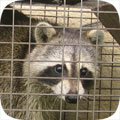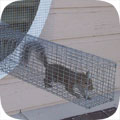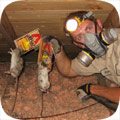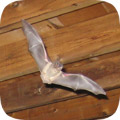- lancaster@wildlifeanimalcontrol.com
Call 24/7 for a free quote:
803-832-2495
Lancaster Wildlife Animal Control
Professional Wildlife Removal Company Servicing Lancaster, SC
If you have a problem with wildlife in your Lancaster home, your best option is to hire a company that specializes in South Carolina wildlife removal only. This is a specialty business, and regular pest control companies do not use the proper techniques to solve animal problems. I have spent many years reviewing South Carolina and Lancaster, and I recommend the following:
Wildlife Removal Columbia
Cell Phone: 803-832-2495
NOTE: If you have a dog or cat problem, call Lancaster County Animal Services: 803-286-8103

Wildlife Removal Columbia specializes primarily in removing animals from attics of homes and buildings - this includes squirrels in attics, raccoons, and rats or mice in homes. South Carolina also has a documented problem with
bats in buildings, and Wildlife Removal Columbia is specially trained in bat removal. They also perform general wildlife trapping services, such as the capture and removal of skunks or opossums on the
property. Call 803-832-2495 to discuss your critter problem and schedule a same-day or next-day appointment. Click here to learn more about
what prices we charge in 2024.
When hiring a company to solve your wild animal problem, you want these features:
- Specializes in wildlife removal, not pest control
- Fully South Carolina and Lancaster County licensed and insured
- Works 7 days per week (critters don't take weekends off)
- Performs full building inspections: enters and inspects attic
- Performs exclusion repairs, with guarantee against animal re-entry
- Offers cleanup of biohazardous wildlife waste
Wildlife Removal Columbia is a full-service Lancaster wildlife removal company. This is very different from a regular Lancaster pest control company. The pest control companies spray poison to kill insects. This is not at all
similar to wildlife removal. Wildlife Removal Columbia performs a full inspection of the home or property, and determines why the animal(s) are there, and if inside a building, how the animals got inside. All
animals (including rodents) are trapped and removed, or if possible, removed from the building using special exclusion devices. Once the animals are gone, preventative repairs are essential, and
cleanup is sometimes recommended.
 Lancaster wildlife trapping - it's not as simple as it may seem. It's illegal in South Carolina to trap without a license. Trap type is very important and there are many different types, bait is somewhat relevant, trap placement
is vital, and there are dozens of small things that are very important to know.
Safety is a concern. Then once the animal is trapped, it must be removed and dealt with in the proper manner according to South Carolina law. We offer Lancaster raccoon removal. Read more about how to get rid of raccoons.
Lancaster wildlife trapping - it's not as simple as it may seem. It's illegal in South Carolina to trap without a license. Trap type is very important and there are many different types, bait is somewhat relevant, trap placement
is vital, and there are dozens of small things that are very important to know.
Safety is a concern. Then once the animal is trapped, it must be removed and dealt with in the proper manner according to South Carolina law. We offer Lancaster raccoon removal. Read more about how to get rid of raccoons.
 Animals in attics - this is our specialty at Wildlife Removal Columbia. Many types of animals like to live in attics. This includes squirrels, raccoons, rats, mice, bats, birds, and even possums. Critters like to go into attics for a safe place to live
and raise their young. Removing animals from attics is very complex work, partly because of the presence of baby animals. If you need Lancaster squirrel removal, we can remove all the squirrels from your attic, and seal out any future ones. Read more about how to get rid of squirrels.
Animals in attics - this is our specialty at Wildlife Removal Columbia. Many types of animals like to live in attics. This includes squirrels, raccoons, rats, mice, bats, birds, and even possums. Critters like to go into attics for a safe place to live
and raise their young. Removing animals from attics is very complex work, partly because of the presence of baby animals. If you need Lancaster squirrel removal, we can remove all the squirrels from your attic, and seal out any future ones. Read more about how to get rid of squirrels.
 Rodent control must be done in a very specific way. First off, the most important thing is that all the openings that rats and mice can use to enter a house be sealed. Then all the rodents must be physically trapped and removed.
Never, ever use poison! Most Lancaster exterminators will just use this lazy poison technique to kill rodents, and it causes more harm than good - dead stinky rats, and it doesn't solve the problem. Call us for correct Lancaster rat removal. Read more about how to get rid of rats.
Rodent control must be done in a very specific way. First off, the most important thing is that all the openings that rats and mice can use to enter a house be sealed. Then all the rodents must be physically trapped and removed.
Never, ever use poison! Most Lancaster exterminators will just use this lazy poison technique to kill rodents, and it causes more harm than good - dead stinky rats, and it doesn't solve the problem. Call us for correct Lancaster rat removal. Read more about how to get rid of rats.
 Bat removal is a highly specialized task. South Carolina is known to have colonizing bats who often live in buildings. Bats love attics. If not removed, the colony can grow to a very large size over the years. The bat droppings are often corrosive and
cause health risks. The same goes for bird droppings on or in buildings. We perform Lancaster pigeon removal and bird control. But our specialty is Lancaster bat removal. We remove 100% of the bat colony and seal the building so that it's totally bat-proof. Read more about how to get rid of bats.
Bat removal is a highly specialized task. South Carolina is known to have colonizing bats who often live in buildings. Bats love attics. If not removed, the colony can grow to a very large size over the years. The bat droppings are often corrosive and
cause health risks. The same goes for bird droppings on or in buildings. We perform Lancaster pigeon removal and bird control. But our specialty is Lancaster bat removal. We remove 100% of the bat colony and seal the building so that it's totally bat-proof. Read more about how to get rid of bats.
 If you have animals inside a house, no job is complete without proper exclusion repairs. If you simply hire a Lancaster trapper who only removes the critters, then the problem will return. You need to hire a Lancaster wildlife control company that identifies 100% of the animal entry points
into your building, and seals them shut with professional repairs. In addition, in many cases animals have left waste or contamination behind, and you'll want a company that can provide professional cleaning services. Wildlife Removal Columbia does both.
If you have animals inside a house, no job is complete without proper exclusion repairs. If you simply hire a Lancaster trapper who only removes the critters, then the problem will return. You need to hire a Lancaster wildlife control company that identifies 100% of the animal entry points
into your building, and seals them shut with professional repairs. In addition, in many cases animals have left waste or contamination behind, and you'll want a company that can provide professional cleaning services. Wildlife Removal Columbia does both.
The above are just some of the services offered by Wildlife Removal Columbia. We also trap and remove animals that destroy lawns, such as moles, or digging animals. Sometimes animals like opossums will live under buildings, steal pet food, raid garbage cans, etc.
Read about how to get rid of opossums. Skunks commonly live under sheds or decks, and set up a den. We can trap and remove them without them spraying. Read about how to get rid of skunks. Wildlife Removal Columbia
also provides dead animal removal in Lancaster. If you need help with any other wildlife conflict, from a fox, beaver, groundhog, or any other critter, we can solve it. We also do Lancaster snake removal - most of the snakes in South Carolina are not venomous, but
call us if you want safe removal, or read about how to get rid of snakes in Lancaster. And remember, we are a private business, not Lancaster County Animal Control Services, so if you have a dog or cat problem, call the County at 803-286-8103.
Lancaster County animal services does not handle any wildlife issues.
Wildlife Removal Columbia
Cell Phone: 803-832-2495
Lancaster Pricing Info
Every wildlife removal situation is different, from the species of animals involved, the location of the animal inside a house or outside, the extent of repairs or cleanup, etc. It's impossible to give one-size-fits-all prices. Examples MIGHT include:Small Job: For example, a one-stop job to remove an animal in the yard: $100 on up
Medium Job: For example, getting critters out of your house with minor repairs: $300 on up
Large Job: For example, a project involving many service trips and complex work: $500 on up
Give us a phone call now and tell us about your wildlife issue and we will be able to give you a price estimate over the phone. If you're cool with it, we can schedule a same-day or next-day appointment if you like. Our prices are fair, and a good value because we do the job right, the first time.
Lancaster Wildlife Tip #1:
What to do with caught skunk - If you catch a skunk, you need to be prepared to take care of the animal afterward. This means you have to have a plan. The skunk is either going to be relocated at least five miles away, or you're going to humanely kill it. What to do with a caught skunk is one of the reasons people hire a wildlife removal company instead of handling the situation on their own. A wildlife expert will come in and trap the animal. They will then relocate it or humanely euthanize it. This is usually much more than the average homeowner is prepared to do. If you have an area to relocate the skunk at least five miles away with ample shelter and water, all you need to focus on is proper trapping technique. To trap the skunk, you can use a traditional cage trap. These can be purchased in most farm stores. Set the trap on level ground near the areas where you have seen the skunk or noticed skunk activity. Bait the trap with marshmallows or cat food.
Lancaster Wildlife Tip #2:
Coral snake - The coral snake is a beautiful snake of average size. It has a pattern of black, red, and yellow bands. Unlike all other North American vipers, the coral snake does not have a triangular head, slit-like pupils, or heat sensing pits. The coral snake's venom sacks are not attached to its fangs, another difference between it and conventional vipers. The venom used by this animal is neurotoxic, meaning it will cause a breakdown in the nervous system of the body, eventually ceasing heart and lung function. Most venomous snakes in North America use hemotoxic venom, a poison that affects living tissue around the site of the wound and throughout the bloodstream. Unfortunately, the coral snake's coloration makes it a prime target for young children. This is how most bites happen; the snake is not aggressive unless it is harassed. Because the coral snake's venom seeps into a wound from glands adjacent to the teeth, venom administration is dependent on the time the animal remains attached to its victim. It is not true that the coral snake must bite repeatedly. Multiple bites will facilitate more venom, but the snake can create the same effect by remaining attached to a single location.
South Carolina Wildlife Information:
South Carolina State bird: Carolina wren, wild turkey
State mammal: White-tailed deer
State reptile: Loggerhead sea turtle
State amphibian: Spotted salamander
State fish: Striped bass
State insect: Carolina mantis
South Carolina is a coastal state, but its sandy shores extend much further inland than you might expect. Millions of years ago, the ocean coast was much different from what it is now, and the center of the state still shows evidence of ancient sand dunes from that time period. Despite the sandy soil, much of South Carolina has reverted back to forest, though the state is relatively flat except for a small patch of the Blue Ridge Mountains in the upper corner. South Carolina gets the best of both worlds-terrestrial and marine animals all in one state.
The marine animals seen by beach-goers are nothing short of amazing. South Carolina sees a number of different whale species. There are also dolphin pods, and porpoises that leap through the waves. Unfortunately, like any state along the coast, seagulls take full advantage of people on the sand, going so far as to steal food right out of people's hands. Not only do the gulls harass tourists, they create problems for local businesses and homeowners. The droppings from the birds are very corrosive.
Inland, the seagulls aren't so powerful. The animal ruling the territories in South Carolina is the alligator. Though not as densely populated as in some states, alligators are in much of the southern part of South Carolina, where the temperatures are more consistent. More widely distributed through the state are coyotes and black bears. There are also red wolves, grey wolves, and mountain lions in South Carolina.
White-tailed deer and wild hogs tend to be the most common grazers in this state. Many years ago, there were both herds of bison and of elk, but deforestation and hunting have made both species extinct to South Carolina. Any bison herds present are privately owned.
Nuisance animals live in South Carolina, just as they live in most other states. This region is ideal for pest critters like raccoons, skunks, opossums, rats, mice, and bats. Due to warmer temperature, bats can be particularly problematic because they do not need to migrate away from their roost if it is inside of a home.
South Carolina also has a number of snakes due to the warm, humid weather. Of the four venomous snakes in the United States, South Carolina has them all. There are cottonmouths, copperheads, coral snakes, and several species of rattlesnakes.
You can always call Wildlife Removal Columbia, any time of day, at 803-832-2495, for a price quote for Lancaster wildlife control services. I am confident that this is the best choice amongst wildlife removal companies in Lancaster, SC.







































